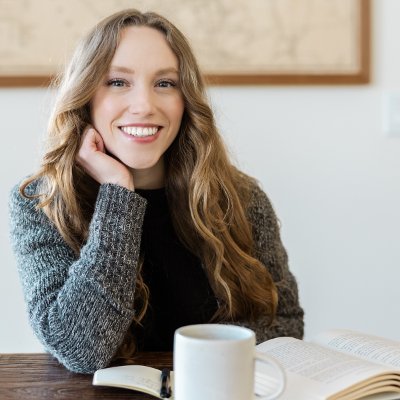
Alyssa Matesic
@AlyssaMatesic
Followers
9K
Following
3K
Media
145
Statuses
3K
Book editor helping authors strengthen their stories (prev @randomhouse @thebookgrp) + dishing out insider publishing tips: https://t.co/oNYD4F9C9U
NYC
Joined July 2013
Editing your own writing can feel as painful as pulling teeth. As a developmental editor, I have a few tricks up my sleeve that can make the process so much smoother & more efficient. Here are some of my favorite self-editing hacks that many of my clients swear by. A 🧵:
35
278
2K
A hill I will die on: suspense is not limited to just mysteries and thrillers! In fact, ALL novels should incorporate suspense. 💞 In a romance: will the couple end up together? 🌎 In a historical novel: how will the events shape the characters' lives? 🐲 In a fantasy novel:
6
6
81
For more writing and publishing insights from industry insiders (established agents + bestselling authors), join 25,000 writers and subscribe to Chapter Break! https://t.co/ZCstgPVwaw
chapter-break.com
Writing advice and book publishing insights from industry leaders and established authors put together by your friendly neighborhood book editor! Click to read Chapter Break, by Alyssa Matesic, a...
0
0
1
If you’re a writer, you should also be a reader — the two go hand in hand. But I get that it can be hard to fit reading in. I personally love audiobooks, so I can engage with a book when I'm walking the dog or cooking dinner. What's next on your TBR list?
1
0
3
✅ It gives you comparable title ideas. I often ask writers what their comparable titles are, and they are only able to name canonical books like THE CATCHER IN THE RYE or huge, outlier bestselling titles like GONE GIRL. For querying purposes, these do not make good comparable
1
0
1
✅ It's a hands-on lesson. Study the characters, the author's structural choices, and their writing style. What did you like, and what did you dislike? Can you pinpoint why? Even if you don't personally like the book, others do. So rather than dismissing it, can you think about
1
0
1
✅ It's inspiring! Reading works outside of your genre can help spark new, creative ideas, especially if you're experiencing writer's block. How are those authors playing with form, prose, and story structure? What can you bring to your own WIP?
1
0
1
✅ It helps you understand what's going on in the publishing landscape. Reading what is currently being published in your genre ultimately helps you understand your audience and author peers, especially if your goal is traditional publishing. What's currently out there already,
2
0
1
Sometimes I hear from aspiring authors who say they don't read at all or haven't read since they were required to read in high school. But I think it's crucial that anyone who calls themselves a writer also considers themselves a reader. This is why reading is absolutely
2
0
7
One of the best pieces of writing advice is also the most overlooked: Read. Read books in your genre. Read books outside your genre. Read new books. Old books. Books by local authors and international authors. And then, read some more. 📖
27
60
348
As a book editor, reading is my job, but it still somehow never feels like work. If you're struggling to get through your TBR pile or find yourself reaching for the remote rather than a book, here are some tips to help you prioritize reading—without rearranging your routine.
1
2
13
You all have been loving this series where I live-critique real manuscripts sent to me, so here's another round! Today, we're talking about things like: 🤜 bringing conflict to the forefront ⏰ clarifying the narrative timeline 📝 whether to include a prologue
2
1
30
Following this formula, what would your author bio look like?
2
0
4
Ta-da! Those three elements are really all you need. Now, here are some details you can leave out of your author bio for the sake of space: ❌ intimate details about your life or family ❌ your educational background (unless relevant or notable) ❌ the inspiration for your book
1
0
3
3️⃣ Where you’re based — authors all over the world query agents, and they will need to know where you're based when you start working together professionally. Plus, you never know if they have a personal connection to wherever you're based. While that's not going to get you
1
0
5
2️⃣ Your professional background — this gives the agent a sense of how writing fits into your life. Mentioning your professional background is especially important if you are writing nonfiction, because in that case, agents will be curious about your authority on the subject
1
0
4
1️⃣ Your writing credentials — this would include: ✏️ previous publications ✏️ writing awards ✏️ notable conferences or workshops you’ve attended ✏️ an MFA or creative writing degree If you are a journalist, run a blog, or are a content writer, you can include that information
3
0
7
What should you include in your author bio? 📝 Sometimes authors write far too much — or far too little — in their query letter bios. A solid author bio can be straightforward and succinct. It just needs three key elements:
3
3
41
It's never going to be fun to receive rejections, but try to get to that point where the rejections roll off your back because you understand that every "no" is one step closer to your "yes." You've got this.
0
0
10
Many successful authors pride themselves on how many rejections they've received throughout their writing career because, to them, it is a testament to the resilience they've built. These writers know that it ultimately only takes one yes from a literary agent and one yes from a
1
0
9

